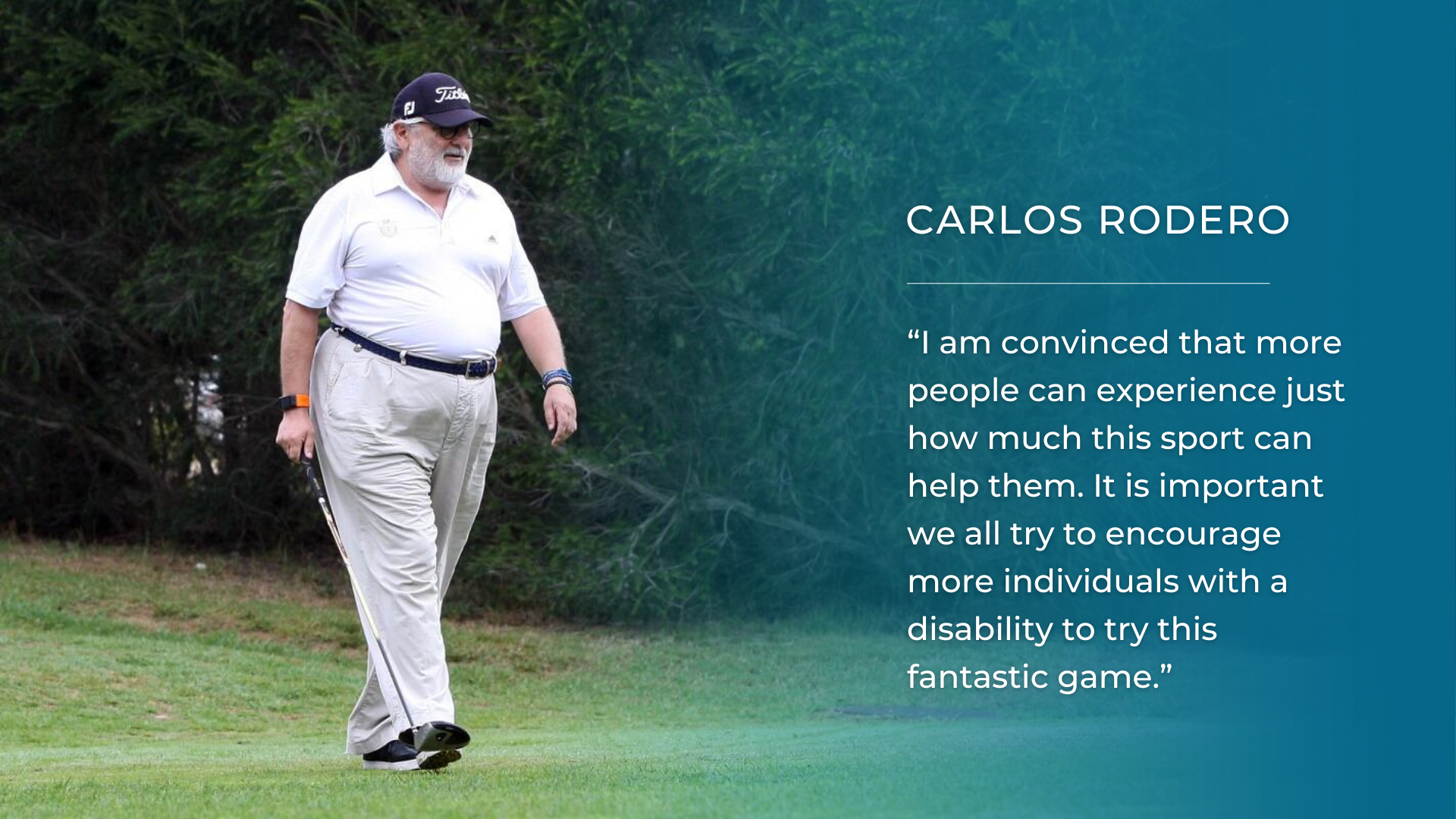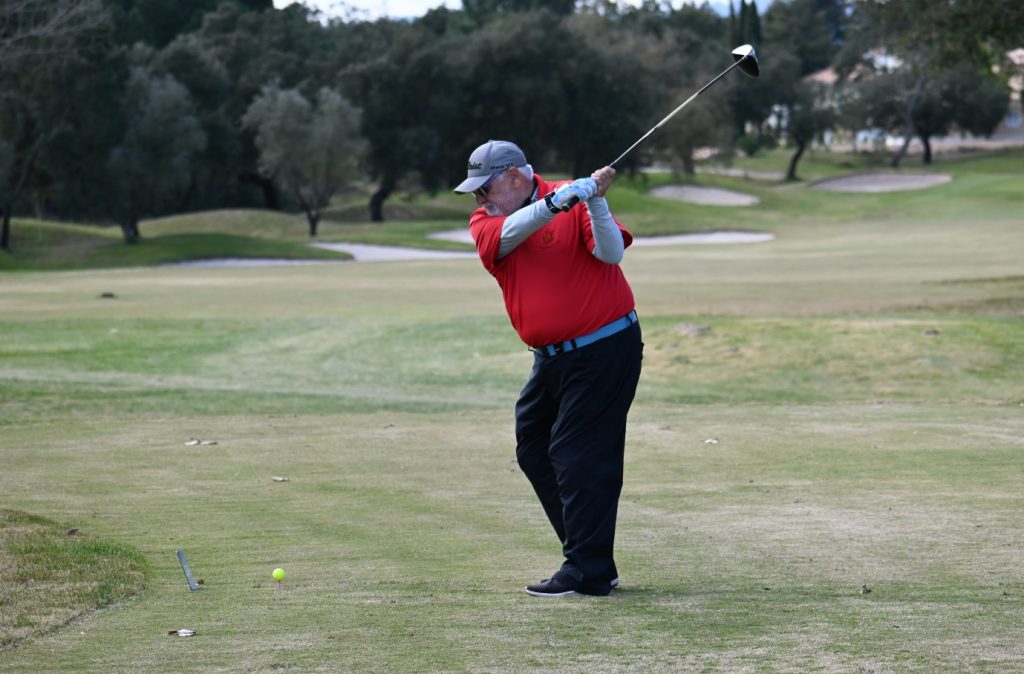
A genial and friendly white-haired Spaniard, Carlos Álvarez Rodero has the look perhaps of a typical golf traveller when we meet him in Portugal. However, though his story of how he arrived in golf is far from typical, what is possibly less surprising is how much the game has given this man who overcame severe injury and trauma.
Carlos, now 66, had always been a lover of sport. He was born in the town of Medina del Campo, Valladolid, to the north of Madrid, and from being a youngster he enjoyed basketball, handball and later canoeing and swimming; his favourite of all was football. He was an energetic, attacking mid-fielder, a ‘number 10’, playing to a high standard, and he supports Atletico Madrid to this day.
In 1989, aged 32, Carlos was enjoying family life to the full in Madrid, with wife Trinidad and daughter of 13 months, Carla. Carlos worked for the railways; he had just returned from a great holiday in the Portuguese Algarve and was back on the job. A keen motorcyclist, when he was heading to work one day he collided head-on with a car. The damage was severe. The lower third of his left leg needed amputation while his right knee was shattered; his left hand and several of the fingers were broken.
“The recovery from the accident was long and traumatic,” explains Carlos. “While I was in the hospital they forgot about my broken hand – they only treated the fingers – sewing them, but they did not act on the broken hand properly until 23 days later. I was trying to walk with crutches but it was impossible due to the pain, leading to further X-rays and putting my hand in plaster for another month in hospital.”
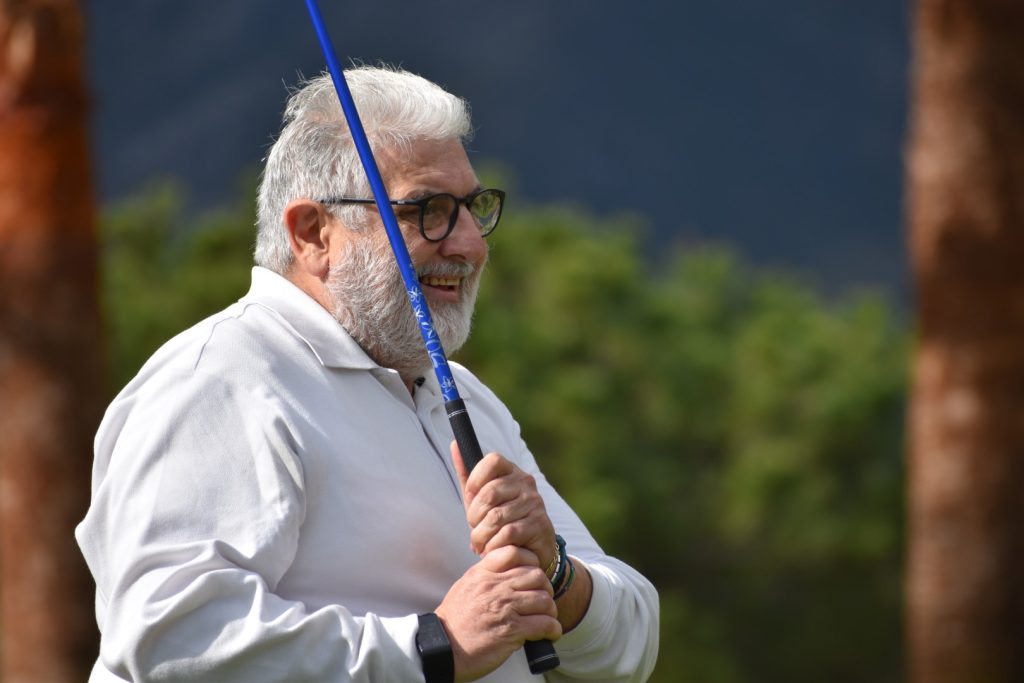
A whole year of rehabilitation followed with radiotherapy for the remainder of his left leg, which then started to give him severe pain. The consultant doctor would find that his tibia bone was growing again and he had to go back to the operating room, before starting the rehabilitation all over again.
Life had been turned upside down and Carlos relied on his close family, including his Mother, for love and support.
Certainly, Carlos’s experience of enjoying sport seemed to be at an end, or so he thought.
“Golf is a sport that was just not played in the rural areas of Spain in the 1960s, ’70s and ’80s, so it was certainly not known by me,” says Carlos. “Living in Madrid in the 1990s, it was through some friends that I first came into contact with golf at a time I did not do any sport. I worked in an office and when I got home, I spent hours on the sofa feeling sorry for myself and doing nothing.”
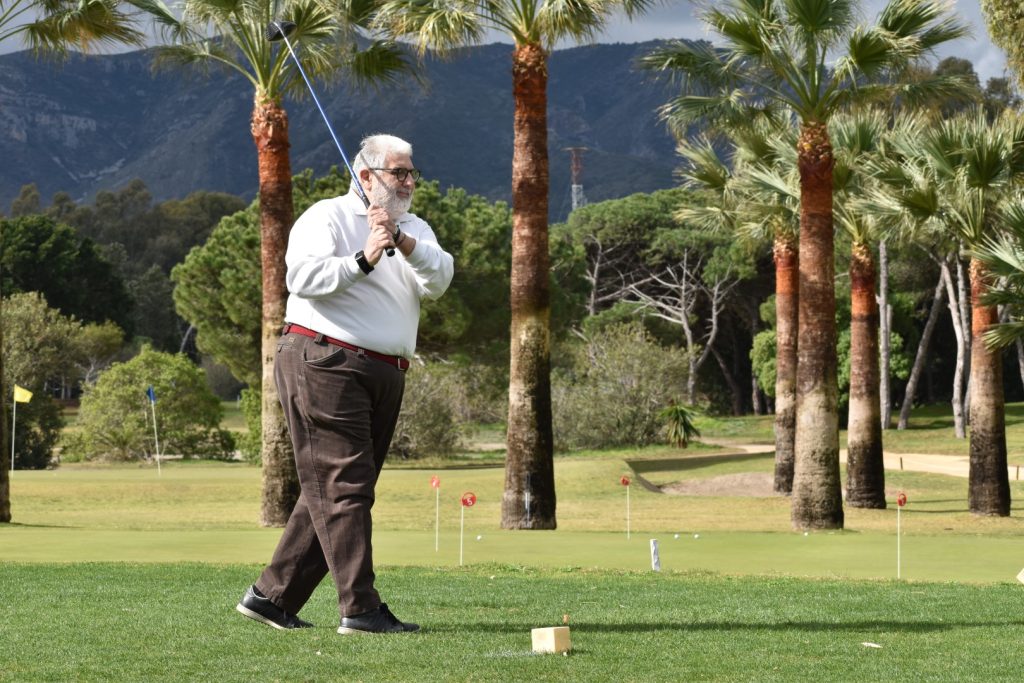
He adds: “Talking with some colleagues at a work meeting the subject of sport came up. They wanted to know whether I played any sports as an amputee. I told them that I no longer practised any of the sports I had enjoyed as a young man. I was in the dark about what I could do. Nowadays it is very different of course, especially due to the advances in the world of orthopaedics.
“My colleagues were golfers, and encouraged me to go with them one day to the golf course to try it. I found I immediately liked the experience. I could finally try a new sport that could be enjoyed outdoors. It would be a huge turning point for me.”
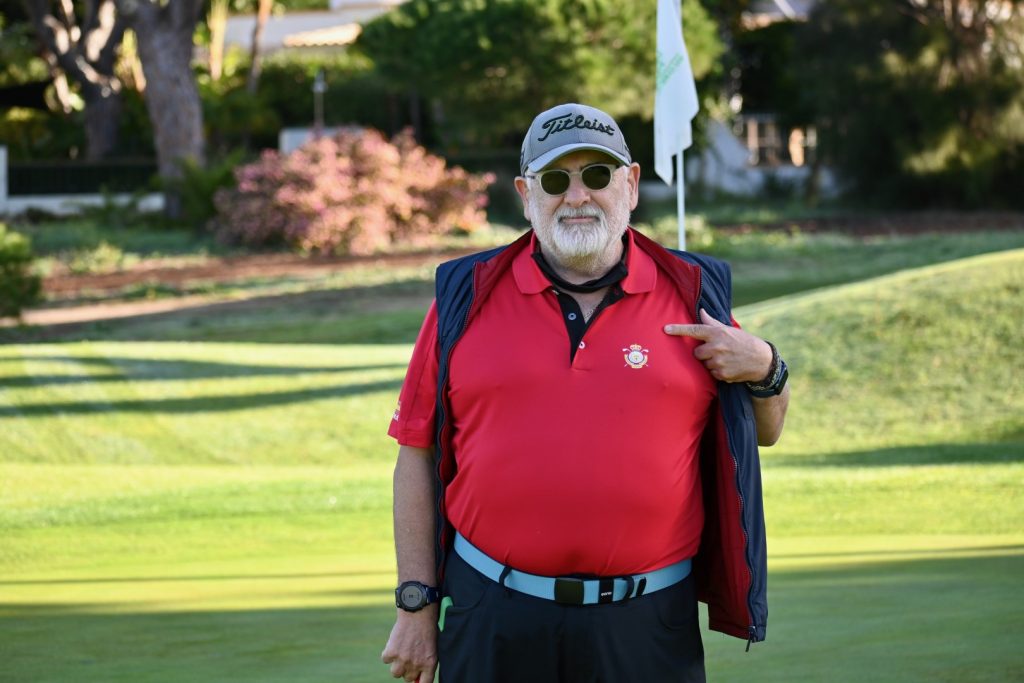
His home club became Espinar Golf Club, a little north west of Madrid.
One day when Carlos was playing golf with friends he was told the Spanish Golf Federation had created a circuit with tournaments for players with a disability. Playing on this he learned about EDGA, and that after registering and having an assessment, he could be free to take part in a growing series of EDGA run or supported tournaments in his home country and at many other countries internationally.
“That day, my life changed radically,” says Carlos. “First of all, I discovered something that has excited me and offered me great personal growth, giving me huge confidence in myself, boosting my wellbeing and self-worth considerably, while meeting a great group of people who helped me by sharing their experiences.
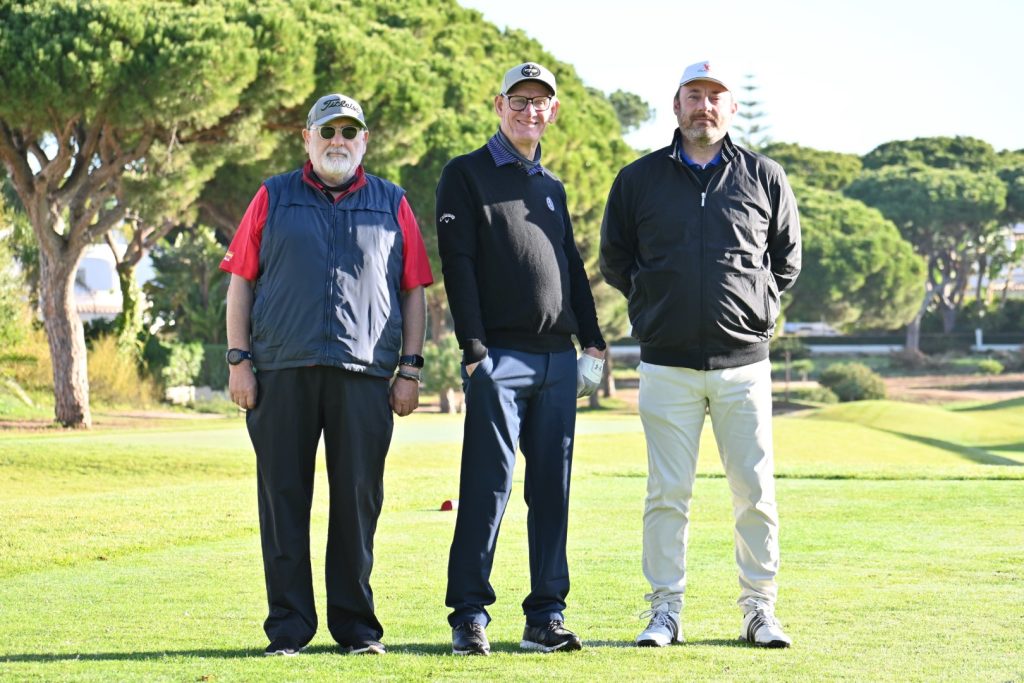
“I would say this has also made me a different person, helping me to get more out of myself, even away from the golf course. Being part of this community of players with EDGA has helped me to overcome the barriers that at first seemed insurmountable. This is thanks to the entire golf family for their support, especially friends from the national golf federation in Madrid.”
Apart from the significant boost that the game has given Carlos, he has enjoyed a love affair with everything about the game of golf itself. “I love the feeling of peace and fresh air,” he tells us, “being out in the wildlife, it is wonderful.”
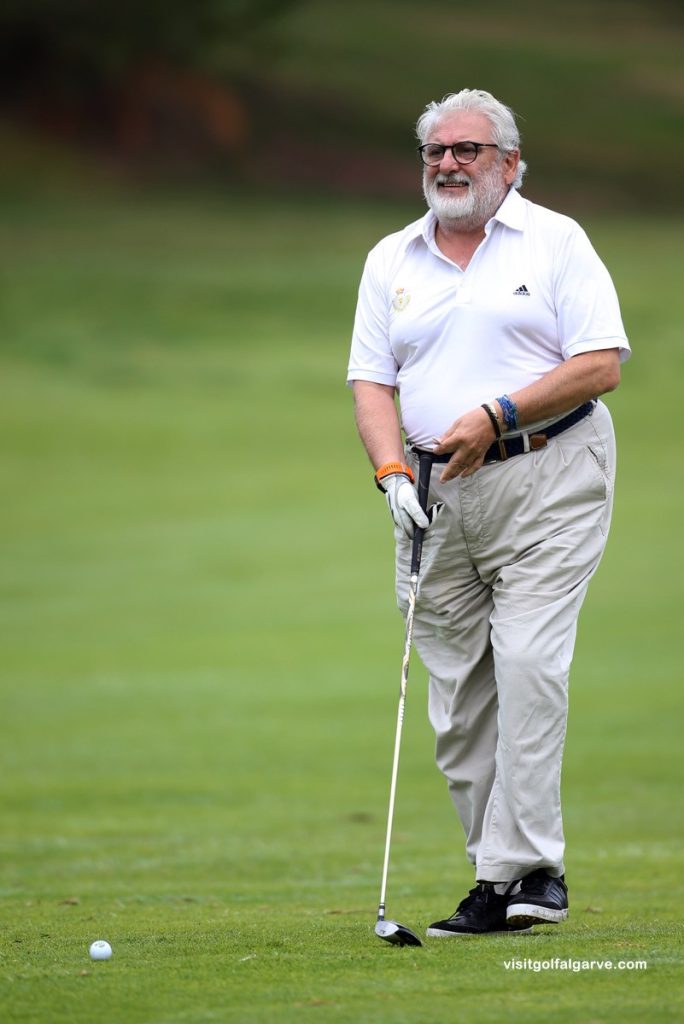
In terms of the technical side of golf, Carlos loves the short game, chipping and putting. As a right-hander in day-to-day life, some of his friends are surprised to hear he is a left-hander on the golf course.
“Although I am currently a left-handed player, I started playing this sport right-handed, but then then the second part of the swing and the follow-through ended on my amputated leg, which could give me very strong pain. They advised me to try to play left-handed and complete the swing on the non-amputated leg, creating less pain. Nowadays I play left-handed like one of my favourite players, Phil Mickelson. This does make me lose distance in my tee shots and on the fairway, but it has been well worth it. A wonderful moment came when as a right-hander I could hit the ball well left-handed and start to compete, and then go on to win my first tournament, which was a dream.”
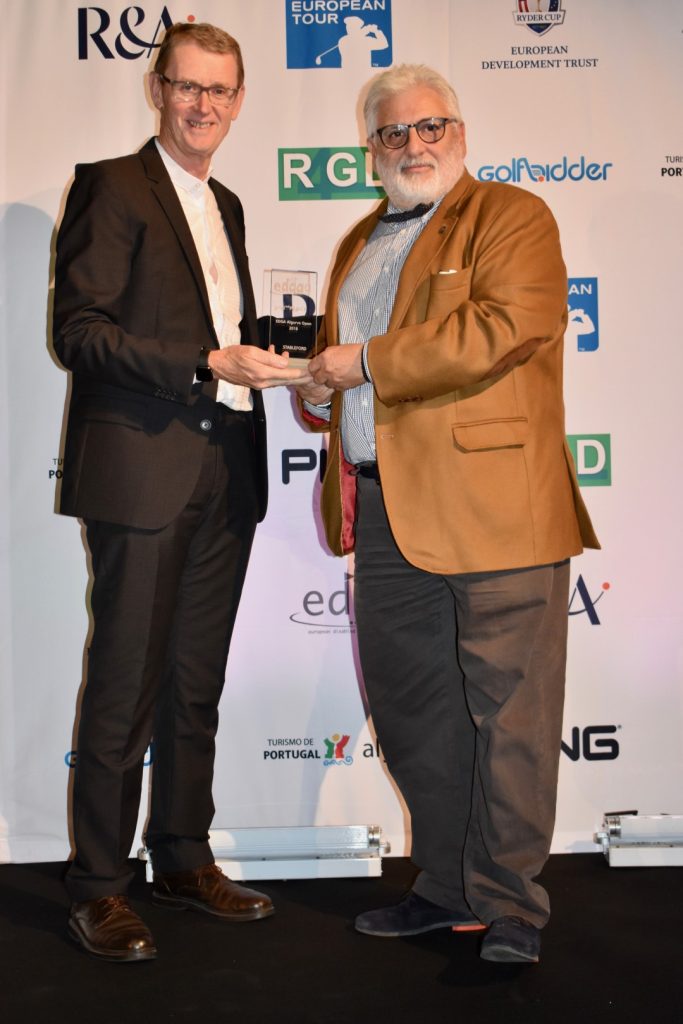
Carlos has played G4D and EDGA related tournaments in Portugal, France, Denmark, Sweden and Spain, some 14 tournaments and counting so far.
Carlos says: “Life would have been very different for me without golf. I would have missed out on all the joy that the game has given me. Golf gives me so much focus and satisfaction, and inner peace, the reward for effort and competition, making new friends and challenging yourself at all times.
“I am convinced that more people can experience just how much this sport can help them. It is important we all try to encourage more individuals with a disability to try this fantastic game.”
Contact EDGA
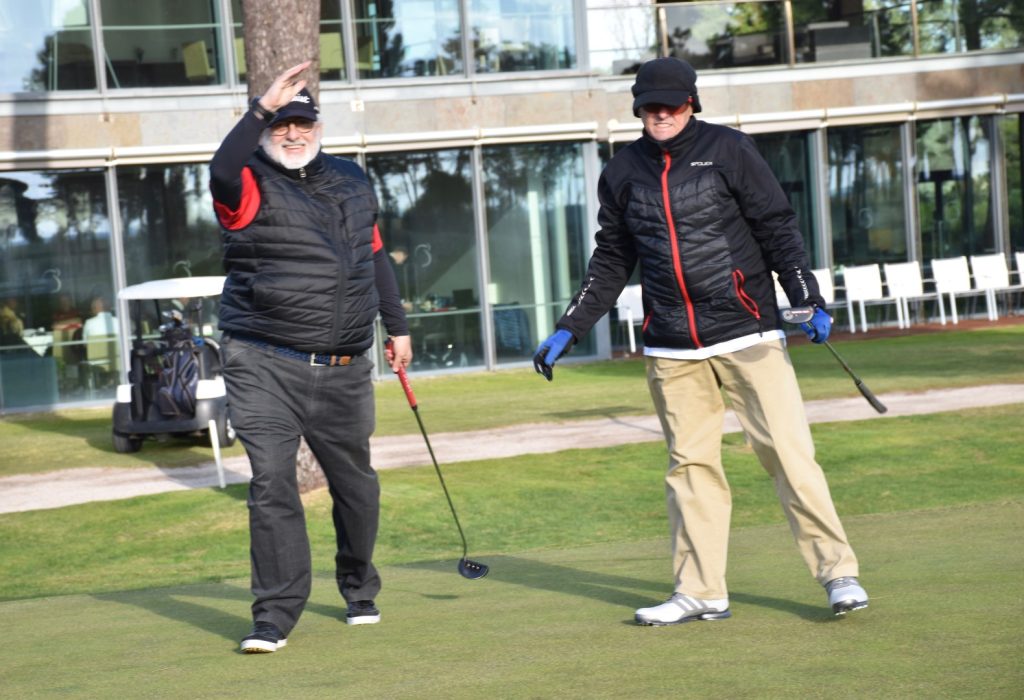
NB: When using any EDGA media, please comply with our copyright conditions


